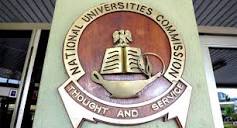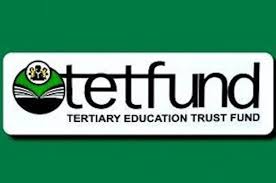The development and launch of the new Core Curriculum and Minimum Academic Standards (CCMAS) in curriculum re-engineering by the National Universities Commission (NUC) has recieved commendations from experts
Executive Secretary of the Global University Network for Innovation (GUNi) Africa, Professor Juma Shabani, the Secretary General of the Association of African Universities (AAU), Professor Olusola Oyewole and scholars at a global quality assurance conference held in Washington, DC, have indicated that CCMAS would enhance quality teaching and learning in Nigerian Universities.
Professor Shabani, a former head of the United Nations Educational Scientific and Cultural Organisation (UNESCO) Bamako Cluster Office and had participated similar exercises, referred to the process as “revolutionary” and worth emulating by other African countries in the quest to attain the African Union’s Agenda 2063.

At the post-launch sensitisation workshop held for Vice-Chancellors, Professor Oyewole who delivered the keynote address was excited about what he labelled as “the future-fit curricula” and described NUC’s efforts as “building the future today”.
According to him “the Executive Secretary of the National Universities Commission, Professor Abubakar Adamu Rasheed, has become the instrument for restoring the originality in the Nigerian university system. He is returning to the Nigerian university system confidence and trust”.
Scholars who got a preview of the CCMAS at the 2023 global conference of the Washington-based Council for Higher Education Accreditation (CHEA) International Quality Group (CIQG) held between January 23 and 26, were unanimous in applauding the giant strides of Nigeria and eager to receive updates on the full implementation of the new curriculum.
Speaking to newsmen in Abuja on return from the Washington conference, the chairman of the NUC Strategy Advisory Committee (STRADVCOM) Professor Peter Okebukola attributed the trajectory to the far-sightedness of Professor Abubakar Adamu Rasheed who has fired a revolution in the Nigerian university system guided by the Blueprint on Rapid Revitalisation of University Education in Nigeria (2019-2023)
According to Okebukola “the curriculum re-engineering process under Professor Rasheed is not just a quick fix which began few months ago as wrongly portrayed by some.
” It is a six-step process which began with a sensitisation lecture about five years ago. This was followed by survey of the gaps in the existing curricula of Nigerian universities.
” The input from the findings formed the basis of a revised edition of the curricula by teams of national and international experts in the disciplines, and private sector players led by the Nigerian Economic Summit Group (NESG).
” The next step was input from Departments and Faculties in the Nigerian university system funnelled to NUC through the Senate of the Universities. Now came the very rigorous step of review which took the better part of 16 months.
” The review teams were carefully selected from among the best scholars in their disciplines, members of professional bodies and Academies. The product of the review which underwent further validation was unveiled on December 5, 2022 by the Vice President Professor Yemi Osinbajo, represented by the Secretary to Government, Mr. Boss Mustapha.
Okebukola who is a former Executive Secretary of NUC stressed that some, out of ignorance, believe that NUC has no business with facilitating curriculum development and minimum standards setting for universities, and failing to note that such power is pursuant to the provisions of Education (National Minimum Standard and Establishment of Institutions) Act No. E3 L.F.N. 2004, and National Universities Commission Act No. N81 Laws of Federation Nigeria (L.F.N.) 2011, which empower the National Universities Commission (NUC) to set minimum academic standards for Nigerian universities.
Okebukola who has observed similar quality assurance-related exercises across the world, singled out Professor Rasheed’s model as one of the best in Africa as it embeds two follow-up activities in the package.
According to him, “One is the intensive training/capacity building of implementers of the CCMAS, a project that is to be coordinated by Professor Ruqayyatu Ahmed Rufa’i (former Honourable Minister of Education and member of STRADVCOM).
“The other is the development of textual materials to support the implementation. This project is coordinated by Emeritus Professor Nimi Briggs (Chairman, Committee of Pro-Chancellors of Federal Universities and member of STRADVCOM).
“Ten highlights of the 2022 CCMAS which replaces the 15-year old and long-overdue-for-change Benchmark Minimum Academic Standards (BMAS) are: (1) Comparable in content to similar curricula in the best university systems in the world and relevant to Nigeria’s socio-cultural context; (2) Addresses the knowledge and skills gaps in the curriculum it is replacing; (3) While providing 70% of core curriculum as minimum for all Nigerian universities, it allows universities to customise and bespoke the curriculum by adding 30% of courses to reflect their uniqueness of mission and contextual peculiarities.
“It also places accent on entrepreneurship, practical rather than theoretical knowledge and skills and the development of 21st century skills; (5) in line with contemporary global practice, change of nomenclature from Benchmark Minimum Academic Standards (BMAS) to Core Curriculum and Minimum Academic Standards (CCMAS); (6) in consonance with emerging development globally, the curriculum is to stimulate blended learning in its delivery; (7) strategically configured to produce future-fit graduates; (8) provides essential foundations for lifelong learning; (9) nurtures deep thinkers and problem solvers and graduates who are highly skilled in their professions and disciplines; and (10) encourages interdependencies of disciplines,” he stated.
Okebukola concluded that from his personal assessment, the NUC CCMAS is configured not as a business-as-usual document, saying it has provided allowance of 30 per cent for universities to innovate and take care of any gap Senate of each university wishes to fill. It is a living document which will keep adding more “cells”.




